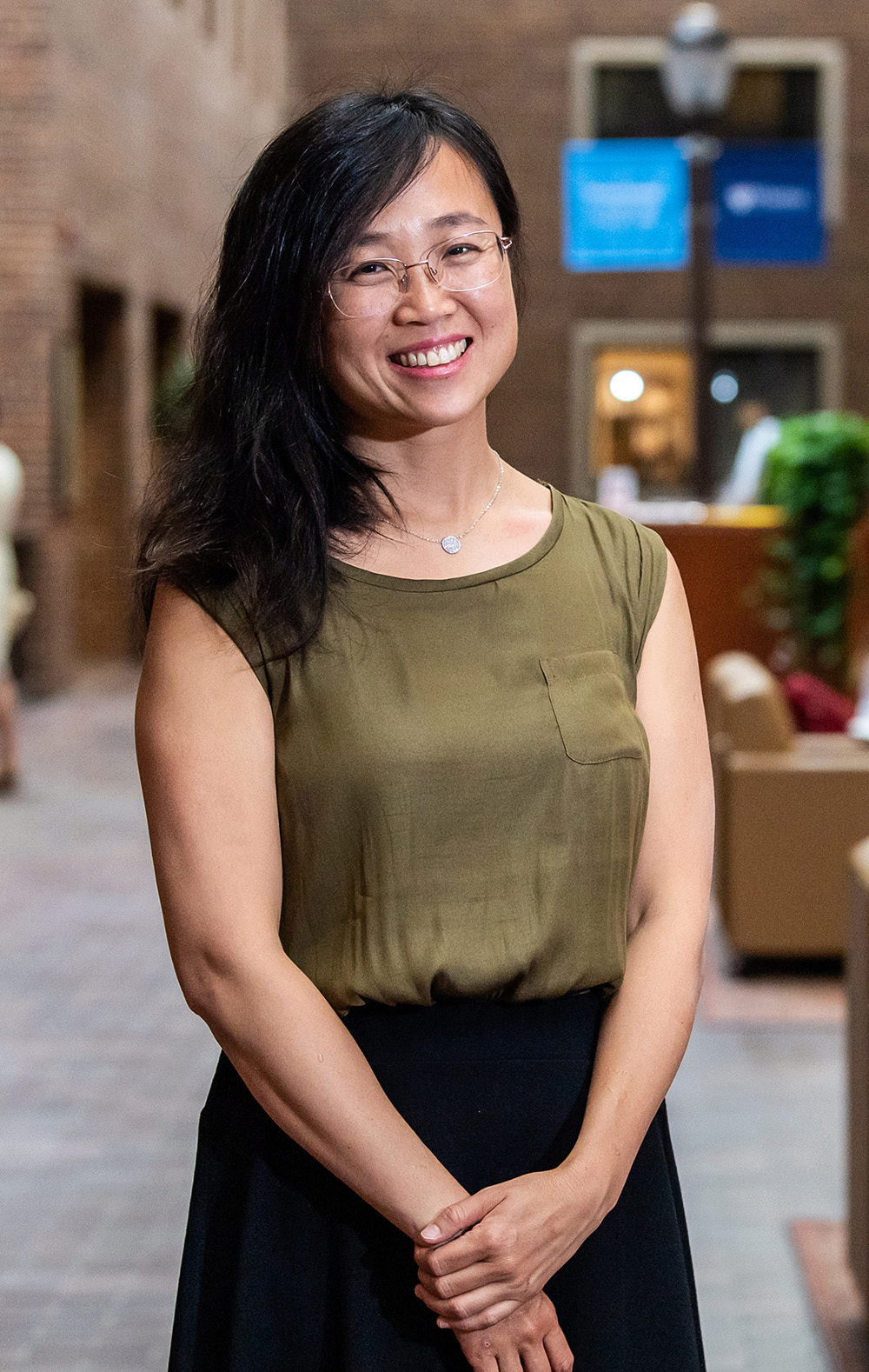Wharton is a place where you can progress, no matter how your ideas and ambitions evolve.
Hello, I am delighted to welcome you to Wharton Doctoral Programs!
Pursuing a PhD is about mastering a field of study and contributing to the creation of new knowledge. Our faculty and student scholars at Wharton are constantly pushing the boundaries of their fields. We are proud to support our diverse, talented, and passionate group of students as they pursue excellence in research and teaching. We take immense pride in our students as they strive to become the next generation of leaders in their respective research fields.
How Wharton Fosters Passion
The main advantage of Wharton Doctoral Programs is the breadth and depth of its faculty. Wharton has nine academic departments, all of which have faculty whose expertise spans a broad range of areas within the discipline. To be a successful academic scholar, you have to have a passion for your area of research. But most doctoral students enter without knowing what to focus on. The breadth and depth of our faculty means that you are likely to find a research topic that you are passionate about, and a mentor whom you trust. It also means that, through classes, seminars, and informal gatherings, you will be exposed to a wide range of ideas.
To cater to the unique needs of each discipline and also provide the maximum support to our students, Wharton Doctoral Programs has a decentralized organization with shared resources. We are decentralized in the sense that each department sets its own admissions criteria and program of study. But all students within Wharton Doctoral Programs have access to shared resources. We have writing and oral communications programs, both of which include one-on-one professional assistance. We have Wharton Research Computing, which helps with all aspects of technology, from programming to distributed computing to data acquisition and storage. We encourage peer mentoring and fund cross-disciplinary research and social activities. Wharton’s associate directors of the doctoral program, Maggie Saia and Gidget Murray, ensure students are aware of the various opportunities around Wharton and the University. Maggie and Gidget also help students navigate various administrative processes.
What Makes a Good Candidate
We look for students who are curious, who are creative, and who are persistent in solving tough problems. We look for students who are willing to challenge convention. Each academic department has its own admissions criteria and evaluates its own candidates, but these would be the universal qualities that we look for in our students.
We also strive to have a diverse group of students in the program — diversity in backgrounds, interests, and ideas. In such a way, our students learn from each other as well as from our faculty.
Please click here to learn more about our application process. You are also encouraged to consult with the doctoral coordinator of your department of interest to learn more about specific requirements.
Nancy R. Zhang
Vice Dean of Wharton Doctoral Programs
Professor of Statistics

Q&A with the Vice Dean
Why did you pursue a PhD?
Vice Dean Zhang: As an undergraduate, I was a research assistant in biology and medical labs at Stanford, and I knew I wanted to do research at the intersection of mathematics and biology. In 2001, which was the year I got my Bachelor’s in mathematics and co-terminal Master’s in computer science, the human genome sequence was published and genomics was an exciting new field, but it was not clear where students with this interest applied to for graduate schools. So after graduation I worked as a software engineer at Silicon Genetics, a startup based in California, while continuing to read and learn about genomics. During that year, I realized that many of the problems that excited me had to do with how to make sense of data. I figured that I needed deeper training in statistics, and thus applied to PhD programs in statistics.
What brought you to Wharton?
Many of my biology collaborators, knowing my research, find it odd that I am a Wharton professor. Indeed, my research is an outlier within my school. But I have found Wharton to be an immensely open, supportive, and research-oriented place.
The problems that excite me have always been found at the intersection of traditional academic fields. Today biology and medicine are studied through the lens of massive amounts of data, and these interdisciplinary challenges have traditionally seeded new developments in statistics. I hope that I can enrich the research environment within Wharton in this way.
What kind of doctoral journey do you want to shape?
I am extremely fortunate to have completed my PhD in a nurturing environment. I think the experiences during doctoral study shape the perspective and character of researchers as they embark on their careers. Much of this is not reflected in publications and even in their initial job outcomes. I would like to help make Wharton a place where graduate students find inspiration and motivation for their work, and where they can be happy and productive.


